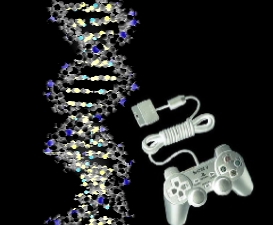Our Research
For centuries the field of engineering has been inspired by nature. As our knowledge of ecological systems improves, we are able to apply techniques commonly associated with engineering back into nature. A study that has benefited greatly from this phenomenon, is gene expression.
We begin by considering the basic biological process of Gene Expression in a simple organism, which shows how information in the genetic blueprint (DNA) is converted into a useful protein. Next, we focus on the mechanisms used in regulating the Gene Expression process. In this section, we learn that the ON and OFF switching of certain genes can be done by repressing and activating these genes using specific proteins.
After understanding the natural process behind gene expression, we explore Recombinant DNA technology. This is explained through the example of insulin production in bacteria. Here, gene fragments are combined with DNA sequences to produce insulin.
We then discuss approaches currently being explored to improve our abilities to control the process of gene expression. We underline the need for synthetic control mechanisms within the cell itself in order to succeed in controlling the expression of genes. A modular approach and analysis through digital circuits is used to understand genetic networks.
Finally, we explore a few alternative methods to the ones mentioned above. We envision future possibilities for the areas of synthetic biology and engineering, also considering social and ethical issues arising from this technology.
Acrobat Reader required
